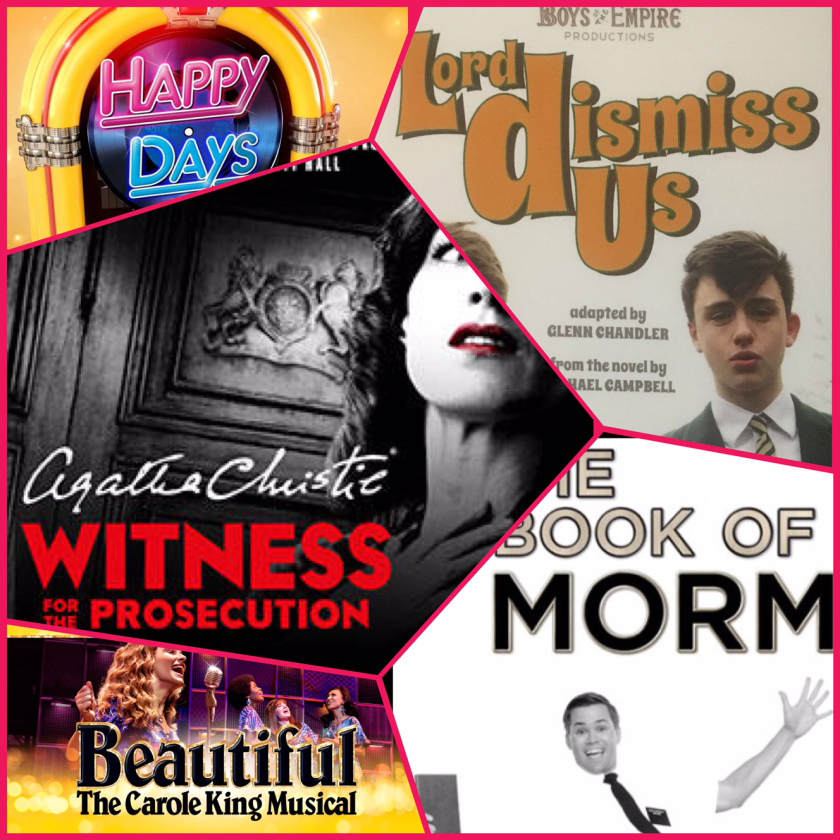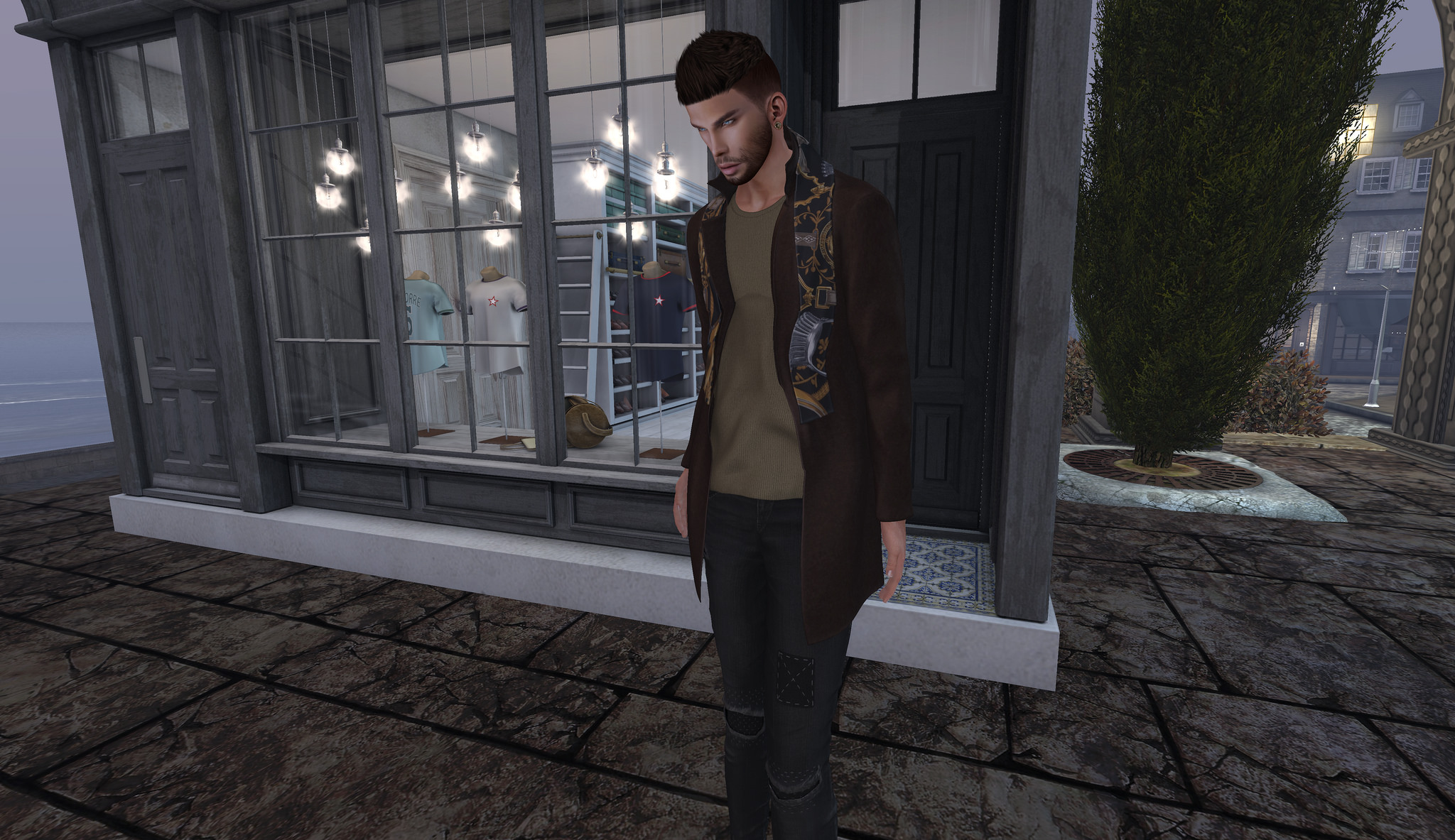
There is a common saying that you can wait all day for a bus, and then three come along together! That saying has particular relevance to what I am writing about today for two reasons. First of all, regular readers of my blog will have noticed that nothing has appeared from me over the past three weeks. I apologise for that, and at the same time inform you that this is the first of two or maybe three blog posts on the same theme, which although not appearing together like the buses, will be ready for your perusal within the next seven days! The second reason that this saying about buses has relevance is that, having been in France for much of the summer, I have not be able to have my regular fixes of theatrical entertainment, but within the space of these three blog free weeks, I have been to the theatre eleven times! Just like the buses, I have waited all summer, and then eleven productions come along at once! So I want to share with you, some of my thoughts on these shows.
Witness for the Prosecution is a play adapted from an Agatha Christie short story first published in 1925 called Traitor Hands. It was in 1951 that the story was adapted as a play. It is currently been staged in London in the unique and most unusual setting of the Council Chamber of the former Greater London Council at County Hall, on the South Bank over the river from the Houses of Parliament. Whoever had the idea of staging it in this chamber certainly hit on a winner. The play itself is riveting, and without giving away the ending, there is a real twist in the tale, which my friends and I never expected, but it is the setting which gives the atmosphere, and for the courtroom scenes the legal dignitaries sit on high in the officials’ seats in the chamber, whereas the other scenes take place in the round on a stage built for this production in the centre of the chamber, around which we all sat in the former Councillors’ seats. The acting was superb, indeed at times it did not feel like a play that one was watching, but that one was actually sitting in a courtroom witnessing a real court case, and wondering how this is all going to end. This production runs until next March, and if you enjoy a good thriller, and can get a seat, this is a play not to be missed. I am so glad that I had the chance of seeing it here.
The following day, since we were staying in London, we went to a West End Show that I had wanted to see ever since it opened back in 2013. I had bought the CD some years ago, and love the music. Sadly, I was disappointed with the show. The Book of Mormon has been very successful on Broadway and in London, it has endeared many people to The Church of Jesus Christ of Latter Day Saints, and the Church itself has mounted a huge campaign to promote itself on the back of this show, even buying advertising space on the sides of London buses and in the programme, but for me the mockery of someone else’s religion, however strange we may consider that religion to be, went just that bit too far. With modern day theatre, one is used to strong language, sex, nudity and all kinds of strange things happening on stage, and I would never want to go back to the days prior to 1968 in the United Kingdom, when the Lord Chamberlain of the Royal Household had the power to censor any play wishing to be licensed for public performance, it is just personally that I did not like the mockery and the crude language. I am sure that I was in a minority that night in the theatre, as most of the audience were loving every minute of it, but it just did not do it for me! Well, you win some, you lose some!
Four days later, I was back in London to see another play. Many years ago, I had read Michael Campbell’s novel Lord Dismiss Us which is set in an English boys’ public school in the 1960s and which deals with the love affair between two boys, together with the internal politics of the school itself. Carleton, a sixth former loves Allen, a boy two years his junior. At the same time, the headmaster is trying to enforce a policy against such liaisons. When the book was written it was a contemporaneous work, now however, it depicts a school at a period in history because the book was published in the same year, 1967, that homosexuality between consenting adults was legalised in the United Kingdom. To mark the fiftieth anniversary of that legalisation, the novel has been dramatised and after a spell at the Edinburgh Festival, Lord Dismiss Us was playing in London for a short season. This is not a production aiming to shock or sensationalise the subject, but following the direction of the novel, just seven actors tell the story very cleverly with pathos and humour, and present the characters in the school, both staff and boys, in both a realistic and yet tender manner. The Headmaster’s wife, played brilliantly by Julie Teal, strives to support her husband in his quest to enforce his policies throughout the school, and at the same time wanting to support the Chaplain, who has a rather different agenda. The Headmaster and the Chaplain, it should be said, never appear together on stage, and these two characters were played by the same actor, David Mullen, which really heightened the tension that one felt was present in the school. Two huge parts, but ones that he portrayed so differently and yet perfectly. Like the novel it is a play about power struggles, and who is in charge, the masters or the pupils? It is about bullying, falling in love, and being forced out because of what you are, and in all this the play succeeds. It was a wonderful evening of theatrical entertainment, but one that asked the audience serious questions.
The fourth show that I saw, was a local amateur group’s production of the musical Happy Days. This is a show based on the American television series of the same name which aired in the 1970s. The story of the musical is taken from the original sitcom, and concerns the kids’ plans to save Arnold’s malt shop (akin to an ice cream parlour), from demolition by hosting a dance contest and wrestling match. It is rather a silly story, but given the popularity of the original series and the making of the character Fonzie, or Arthur Fonzarelli, and the actor Henry Winkler into a big star, it is not surprising that it was turned into a stage musical. I can’t say that I really enjoyed this show, and I cannot remember one of the songs apart from the title song, but it was a brilliant choice for this company. Here in Coventry, we are very fortunate to have a flourishing amateur theatrical scene. One of the groups, which has produced a number of West End actors, singers and dancers, is the Coventry Youth Operetta Group, which puts on two major shows each year. In this production, the leads were strong, having worked their way up over the years, but what made this the ideal choice this year was the fifty strong younger members of the company who were all given roles and who quite obviously enjoyed what they were doing. If nothing else, the exuberance and the joy which this cast showed, was something that everyone will remember, and of which they can be really proud. If local amateur theatre is to continue and flourish, then this is something to be encouraged and supported.
From amateur theatre, to a West End musical on a UK tour, and the production of Beautiful, The Carole King Musical at the Birmingham Hippodrome. In recent years there have been numerous musicals, which showcase the songs of various artists. Buddy, the story of Buddy Holly, opened in 1989, and was the first of these so-called ‘Jukebox Musicals’. I enjoyed Buddy back then, because it told the story of Buddy Holly and incorporated his songs into his life story. For me, others since, have just been an excuse to sing the songs of individuals or groups; some successful, others not. Beautiful, in my opinion, falls into the category of those that succeed. Before I went to this show, I had obviously heard of Carole King, but did I know much about her? No not really. Did I know which songs she wrote? Again, no not really. But I came away thinking, of course I knew those songs, I was brought up with many of them, and those well known songs were cleverly woven into the story of her life which was told on that stage. On Broadway, The Locomotion, You’ve lost that loving feeling, It might as well rain until September, Up on the roof, Take good care of my baby, You’ve got a friend and Oh! Carol, to name just some of the songs from the show. The night we went to Birmingham, the Hippodrome was packed, all one thousand eight hundred and fifty seats, as it was all week. So popular was it, that it is returning to Birmingham in February for another week.
I called this post Act 1, which means, of course, that there is more. So there now follows a short interval, after which I will be back with more shows in Act 2!
Advertisements Share this:





